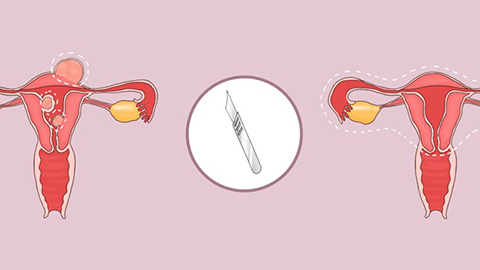What changes occur in the body after a hysterectomy for squamous cell carcinoma?
After a hysterectomy for squamous cell carcinoma, physical changes primarily affect the reproductive, endocrine, and urinary systems. These include permanent cessation of menstruation, hormonal fluctuations, loss of fertility, impact on sexual life, and urinary discomfort. Most of these changes can be gradually adapted to with proper care. The details are as follows:

1. Permanent cessation of menstruation: The uterus is the primary organ responsible for menstruation. After hysterectomy, the endometrium can no longer undergo periodic shedding, resulting in permanent termination of menstrual cycles. This change is not an abnormal amenorrhea caused by disease but an inevitable consequence of surgery. There is no need for excessive concern; however, it is important to distinguish this from abnormal bleeding experienced before surgery.
2. Hormonal fluctuations: If the ovaries are removed during surgery, there will be a sudden drop in estrogen and progesterone levels, leading to menopause-like symptoms such as hot flashes, night sweats, and insomnia. Even if the ovaries are preserved, hysterectomy may indirectly affect ovarian blood supply, causing temporary hormonal imbalances.
3. Loss of fertility: The uterus is essential for fetal development. After its removal, women permanently lose their natural ability to bear children. For younger patients who wish to preserve fertility, it is crucial to have thorough discussions with their doctors before surgery to evaluate whether fertility-sparing surgical options are feasible.
4. Impact on sexual life: In the short term after surgery, some patients may experience pain or discomfort during intercourse due to healing of the vaginal stump, which typically improves as the wound heals. Some patients may develop vaginal dryness due to hormonal changes; under medical guidance, lubricants can be used to alleviate symptoms. Long-term negative impacts on sexual quality of life are uncommon.
5. Urinary discomfort: The female reproductive and urinary systems are closely adjacent. Following hysterectomy, changes in pelvic support structures may weaken urethral sphincter function, leading to symptoms such as frequent urination, urgency, or stress urinary incontinence. With pelvic floor muscle rehabilitation exercises, most patients can gradually restore normal urinary function.
After surgery, patients should follow medical advice regarding nutritional supplementation, engage in appropriate pelvic floor muscle training and general physical activity, and maintain emotional well-being. Regular follow-up evaluations of hormone levels and pelvic conditions are essential to promptly identify and manage any postoperative complications, supporting a quicker return to normal daily life.




